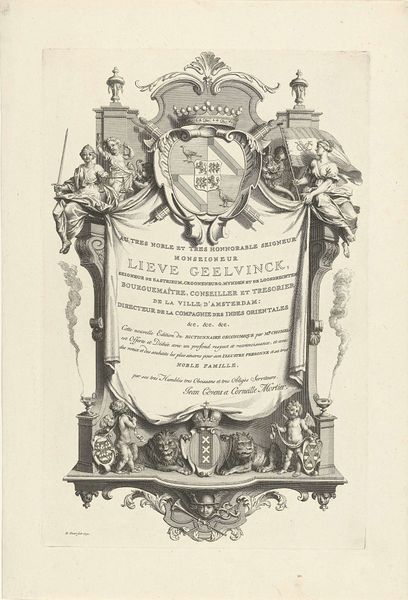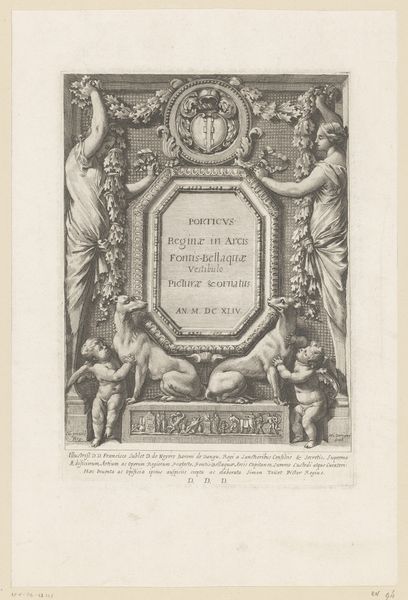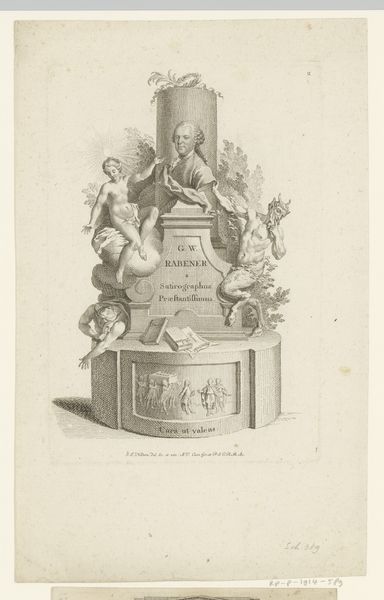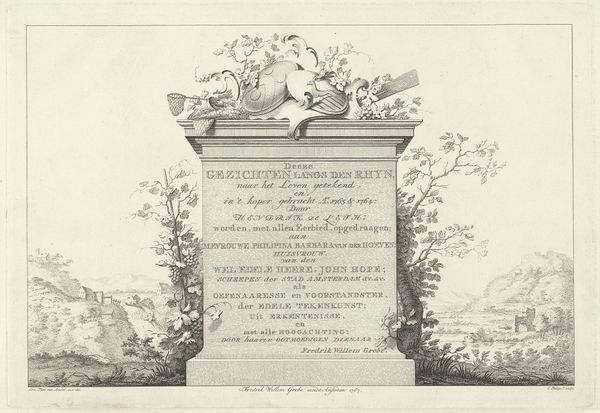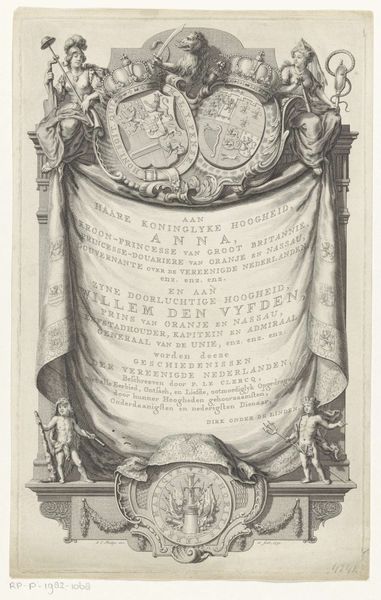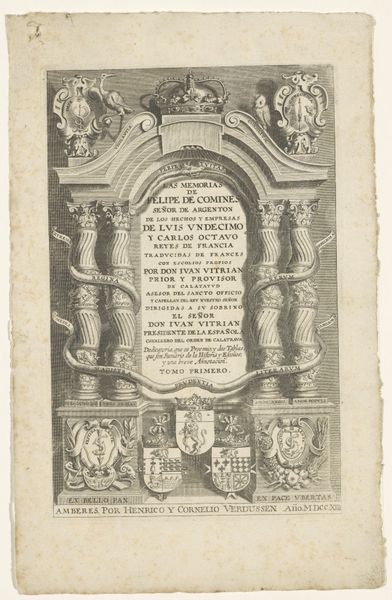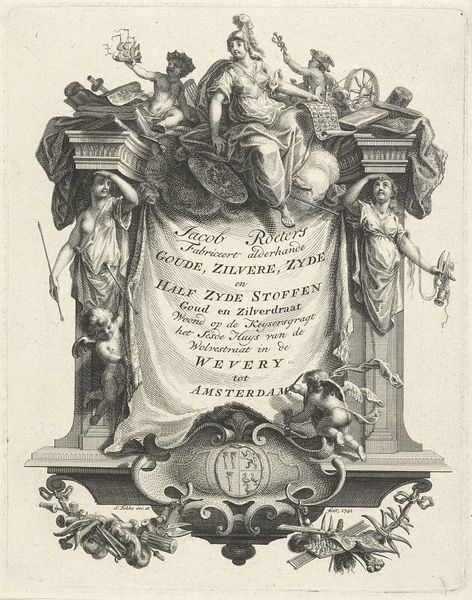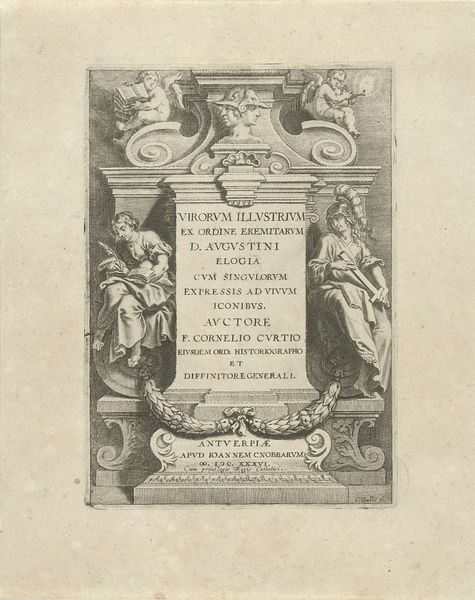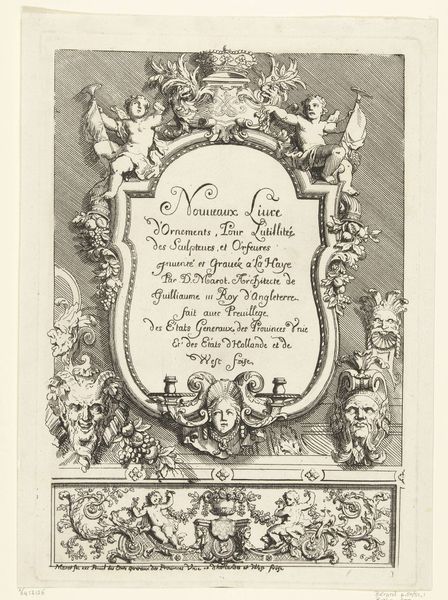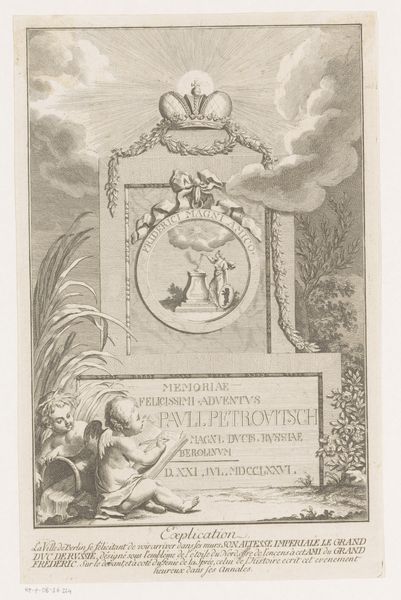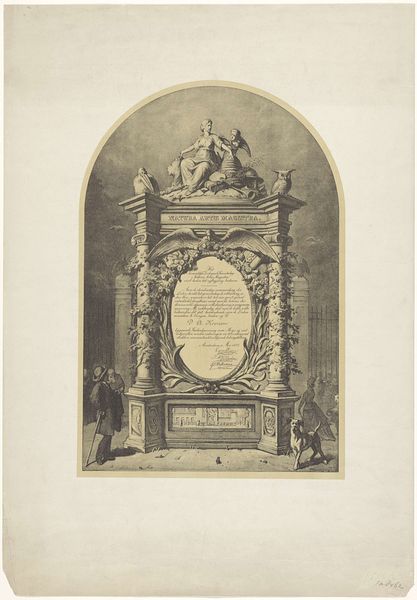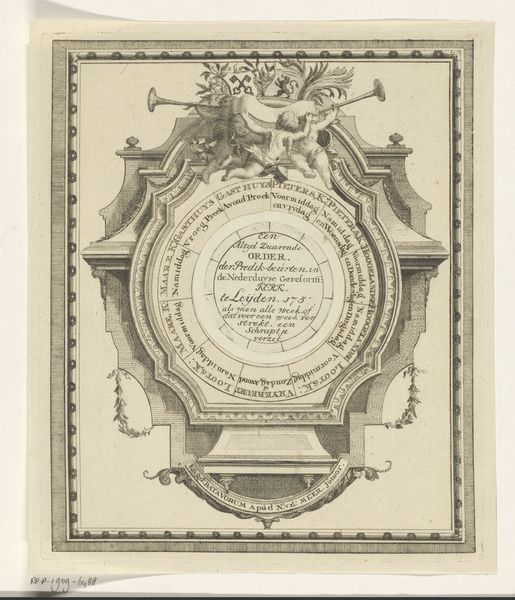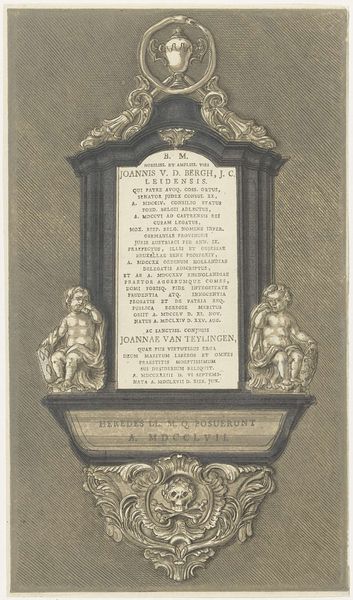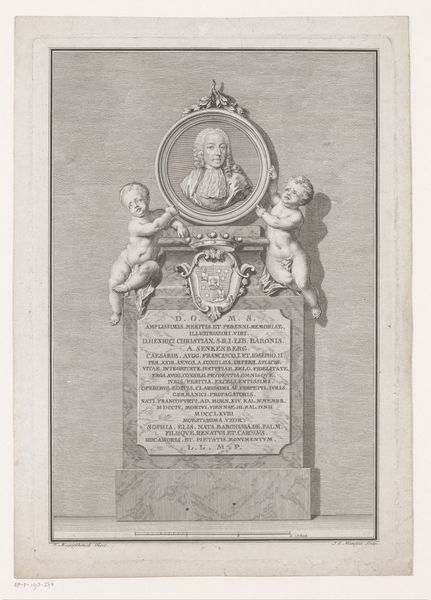
engraving, architecture
#
allegory
#
baroque
#
dutch-golden-age
#
pen sketch
#
pencil sketch
#
engraving
#
architecture
Dimensions: width 268 mm, height 391 mm
Copyright: Rijks Museum: Open Domain
Jan Goeree created this print, *Monument met opdracht aan Balthazar Scott*, sometime between 1670 and 1731. The eye is immediately drawn to the monument's elaborate structure. Its symmetrical design, framed by allegorical figures and ornate details, speaks to a formal approach rooted in classical traditions. Goeree uses line and form to create a visual hierarchy, drawing attention to the inscription dedicated to Balthazar Scott. The composition, with its layers of symbolic elements—from the heraldic crest to the flanking figures—invites us to decode its meaning. What cultural codes are at play here? The monument itself can be seen as a signifier of power and status. In scrutinizing its structure and semiotic elements, we begin to appreciate how Goeree uses established artistic conventions to reflect the values and social structures of his time. The monument's rigid symmetry and detailed ornamentation represent a desire for order and a celebration of civic authority. Meaning is not fixed but rather emerges from the interplay between form, content, and cultural context.
Comments
No comments
Be the first to comment and join the conversation on the ultimate creative platform.
